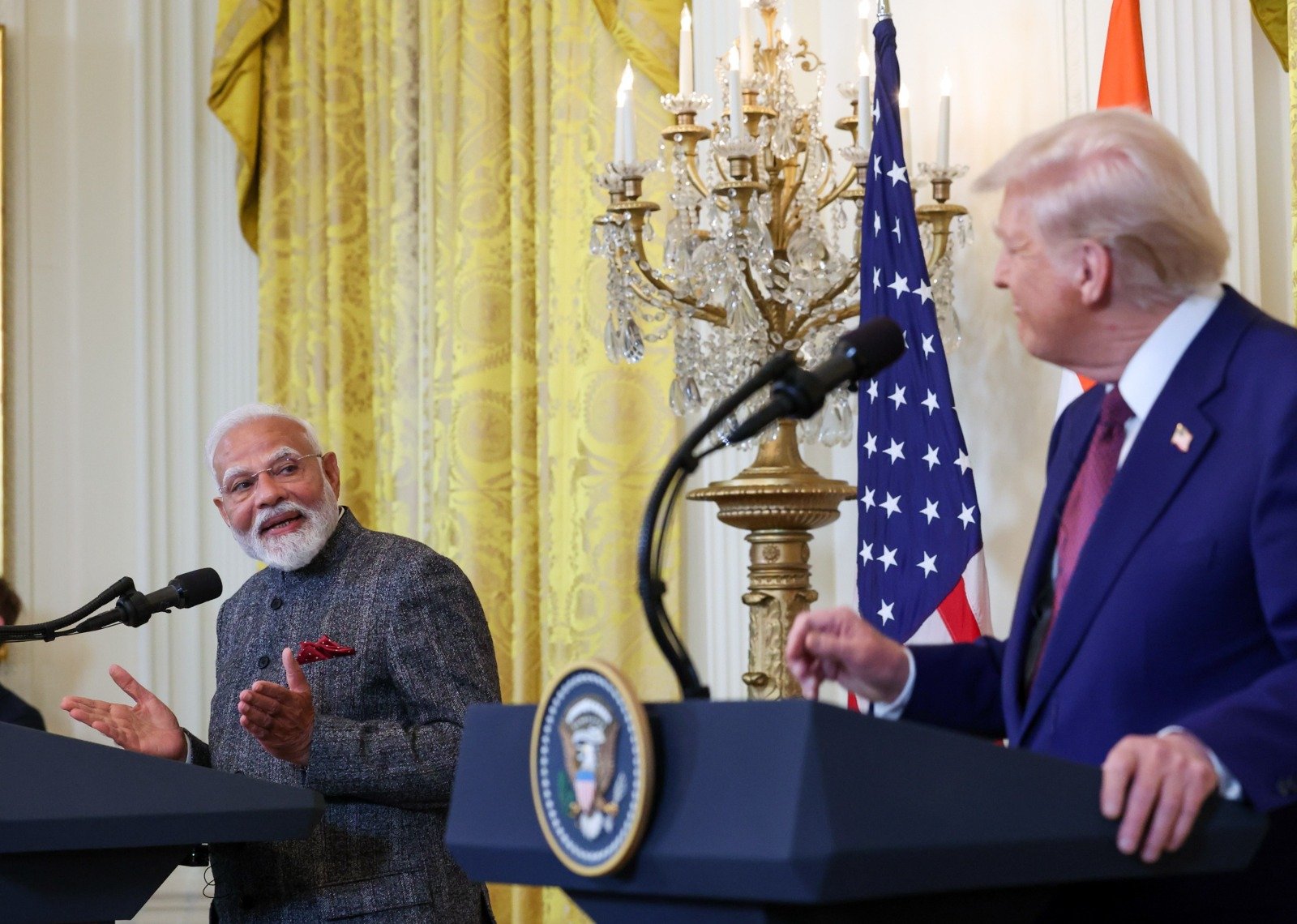Prime Minister Narendra Modi and US President Donald Trump have jointly called on Pakistan to ensure its territory is not used for cross-border terrorism, emphasizing the need for decisive action against terror groups operating from its soil.
During a joint press conference following bilateral talks, PM Modi praised the US decision to extradite Tahawwur Rana, an accused in the 2008 Mumbai terror attacks, to India. PM Modi asserted that Indian courts would now take appropriate legal action against him. The extradition marks a significant step in India’s long-standing demand for justice for the victims of the Mumbai attacks.
“India and the United States have stood firmly together in the fight against terrorism. We agree that concerted action is necessary to eradicate cross-border terrorism,” PM Modi said. He expressed gratitude to President Trump for his decision to hand over Rana, reinforcing the commitment of both nations to counter-terrorism efforts.
A joint statement issued after the talks reiterated the demand for Pakistan to swiftly bring to justice the perpetrators of the 26/11 Mumbai and Pathankot terror attacks. It underscored the need to prevent Pakistan-based terror outfits like Jaish-e-Mohammad and Lashkar-e-Taiba from orchestrating attacks across borders.
The two leaders reaffirmed their commitment to eliminating terrorist safe havens globally and pledged to strengthen cooperation against terror groups such as Al-Qaida, ISIS, Jaish-e-Mohammad, and Lashkar-e-Taiba, aiming to prevent atrocities like the Mumbai attacks and the Abbey Gate bombing in Afghanistan.
The US announcement of Tahawwur Rana’s extradition to India was hailed as a landmark decision. “Recognizing a shared desire to bring to justice those who would harm our citizens, the US announced that the extradition to India of Tahawwur Rana has been approved,” the statement said.
PM Modi and President Trump also pledged to collaborate in preventing the proliferation of weapons of mass destruction and ensuring these do not fall into the hands of terrorists and non-state actors.
In addition to counter-terrorism, both leaders emphasized their commitment to energy security, agreeing to advance the US-India 123 Civil Nuclear Agreement. They announced plans to build US-designed nuclear reactors in India, focusing on localization and technology transfer. The Indian government’s budget announcement to amend the Atomic Energy Act and the Civil Liability for Nuclear Damage Act was welcomed, aiming to facilitate US-India collaboration in nuclear energy.
The two leaders also highlighted the importance of people-to-people ties, acknowledging the significant contribution of over 300,000 Indian students in the US, who contribute more than USD 8 billion annually to the American economy. They resolved to enhance academic collaborations through joint degree programs, Centers of Excellence, and offshore campuses of US institutions in India.
(Inputs from ANI)














